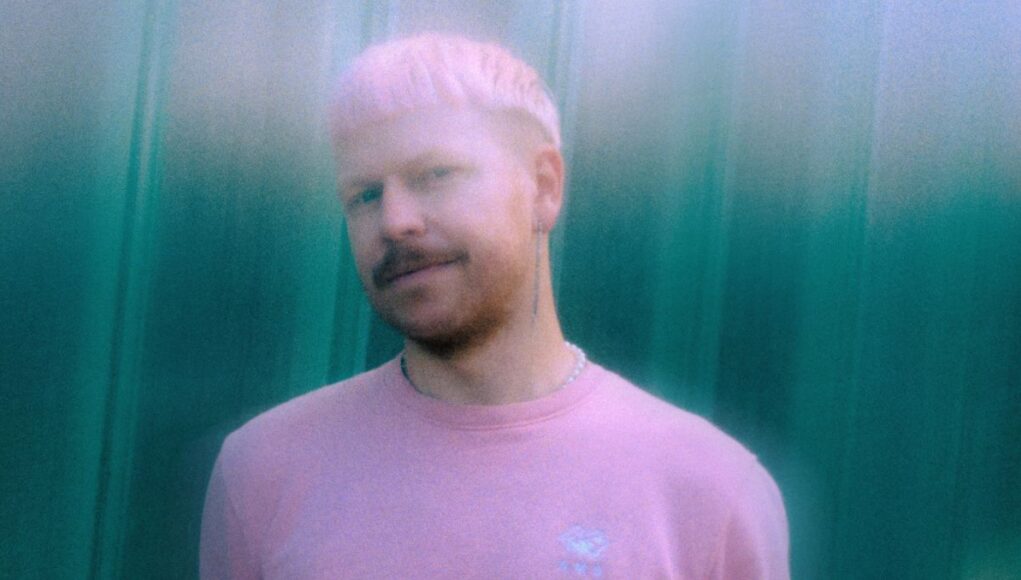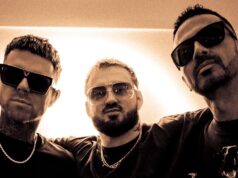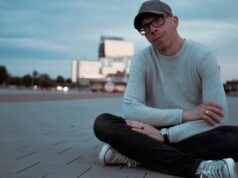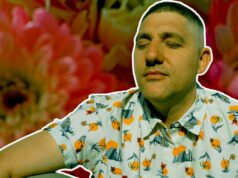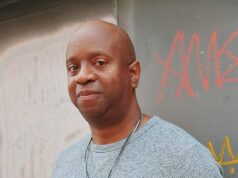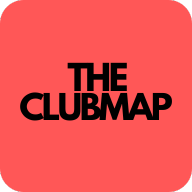Berlin’s club culture has long thrived on its raw, unrelenting energy. But for Asa 808, there’s room for something else: a breath, a moment of reflection, a reminder of the dancefloor’s potential for intimacy and emotional resonance. Their latest EP, Let ur heart breathe, feels like a quiet rebellion against Berlin’s steely, hypermasculine pulse, offering instead a sound that’s unabashedly tender yet undeniably functional.
Drawing on leftfield house, ambient textures, and a philosophy that celebrates vulnerability as a radical act, their music carves out a space for softness within the hard edges of the club. It’s not about escapism or hedonism, but about forging connections—between rhythms and textures, between bodies on the floor, between identities in flux. Tracks like „building bridges“ and „If u can’t be cheesy, u can’t be free“ blend playfulness with a depth that reflects the artist’s commitment to creating not just tracks, but portals for collective care.
In this conversation, they discuss the evolution of Berlin’s nightlife, the philosophy underpinning their work, and the collaborative spirit at the heart of their TOYS Berlin imprint. It’s a vision of the dancefloor as both refuge and revolution.
Berlin’s club scene is known for its raw energy and experimental edge. How does your music reflect or push against the conventions of this scene?
While Berlin’s club scene thrives on rawness and intensity, I see my music as a counterbalance that invites some radical softness into these spaces. The city’s clubs are legendary for pushing sonic and cultural boundaries, but there’s often a hypermasculine energy that I try to detox in my own work. By blending playfulness, vulnerability, and emotional connection, I hope to remind people that gentleness and solidarity can be just as revolutionary. My music is less about domination and more about creating bridges—between people, identities, and emotions.
The title of your EP, Let ur heart breathe, feels at odds with the intensity often associated with Berlin nightlife. How do you see your music fitting into or contrasting with the club environment?
Berlin nightlife is often associated with relentless energy and dark, driving beats, but I think there’s room for softness and reflection, even in Leftfield House, Bass and Techno. Let ur heart breathe and my album Boy, crush are my attempts to carve out that space—a moment of exhale amidst the intensity. It’s about giving yourself permission to slow down and connect with others in a meaningful way. I believe the club environment can be a space for radical authenticity and joy, not just escapism or bravado, and that’s the kind of energy I want to contribute.
Your music blends house and ambient elements, both of which can evoke strong emotional responses. How do you approach crafting tracks that resonate emotionally while maintaining a groove for the dancefloor?
My process usually begins with a few sounds—drums or harmonies—that feel right to me. From there, I build the track around what resonates, whether that’s a steady groove or a more atmospheric texture. House and ambient elements naturally balance each other: house provides the rhythm and drive, while ambient layers create depth and space. I try to let these elements complement each other without overthinking, ensuring the track feels grounded but also alive, human and open enough for personal interpretation on the dancefloor.
You’ve been part of documentaries like Exzess Berlin. What do you think is the most misunderstood aspect of Berlin’s club culture, and how do you aim to represent it in your work?
One big misunderstanding is that Berlin club culture is all about excess and hedonism. While those elements exist, the deeper truth is that these spaces have always been havens for marginalized communities—places of queer resistance, expression, and solidarity. In my work, I try to highlight that history and reclaim the narrative. For me, the dancefloor is about more than just music; it’s about creating spaces where people feel safe, seen, and free to be themselves. That’s the spirit I want to amplify through my music and events.
TOYS Berlin has become a notable imprint. How has running the label influenced your perspective on Berlin’s music ecosystem, and what excites you most about its future?
Running TOYS has shown me how much potential there is in Berlin’s music scene for collaboration and community-building. It’s not just about releasing tracks—it’s about fostering a platform for diverse voices and supporting artists who share our values of inclusivity and authenticity. I hope that we can keep creating spaces where music feels deeply connected to activism, community, solidarity and care.
The new EP Let ur heart breathe feels rooted in themes of love, connection, and authenticity. What personal experiences or influences inspired this direction, and how did they manifest in the sound and structure of the tracks?
The EP was inspired by the energy of the queer spaces and communities that keep me going—places where love, joy and solidarity shine through, even in hard times. After a year filled with political and social heaviness, I felt the need to create something that felt like a breather, a space for warmth and connection. You’ll hear that in the uplifting melodies, the playful rhythms and the subtle ambient touches throughout the tracks. The structure is intentional, offering moments to move, reflect and connect, just like a good night on the dancefloor.
Tracks like „building bridges“ and „If u can’t be cheesy, u can’t be free“ suggest a playful yet profound narrative. How did specific influences—be they musical, philosophical, or cultural—shape the thematic identity of the EP?
The EP draws on a mix of influences: the openness of Buddhist philosophy, the emotional honesty of queer culture, and the musical playfulness of leftfield house and ambient. “If u can’t be cheesy, u can’t be free” was inspired by a Buddhist quote. The idea is that embracing cheesiness and kindness – being unapologetically sincere and playful (especially when wishing the best for someone else or when expressing appreciation) – can free you from self-referentiality and bring more color and happiness into this world for everyone – really fascinates me. That’s exactly what I wanted this EP to embody: the joy and liberation that comes from letting go of pretentiousness and allowing yourself to be open, appreciative, generous, lighthearted and connected. Positivity and play open doors to imagining better futures. If we forbid ourselves or shy away from being cheesy, then we curtail our freedom and our ability to imagine a brighter future. “Building Bridges” reflects my desire to foster connection and understanding in divisive times, inspired by the compassion at the heart of both queer spaces and global movements for justice.
Collaboration seems integral to your work, especially through the TOYS Residency. How do collaborations with other artists, particularly in Berlin, shape the music you create and play?
Collaboration is at the core of everything I do. Berlin is full of incredibly talented, open-hearted artists, and working with them pushes me to grow and try new things. Through the TOYS Residency and events, I’ve been able to curate lineups and mixes that showcase a range of perspectives, and that diversity feeds directly into my own creativity. Whether it’s through shared studio sessions, b2bs or conversations on the dancefloor, collaboration reminds me that music is ultimately about connection – something we build together.


